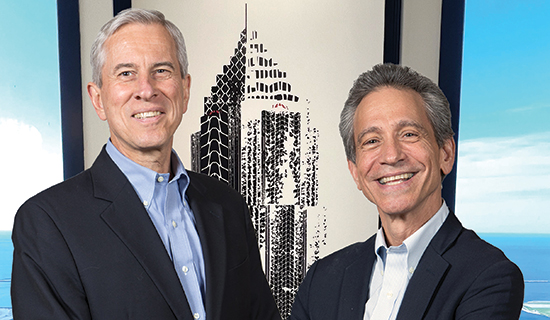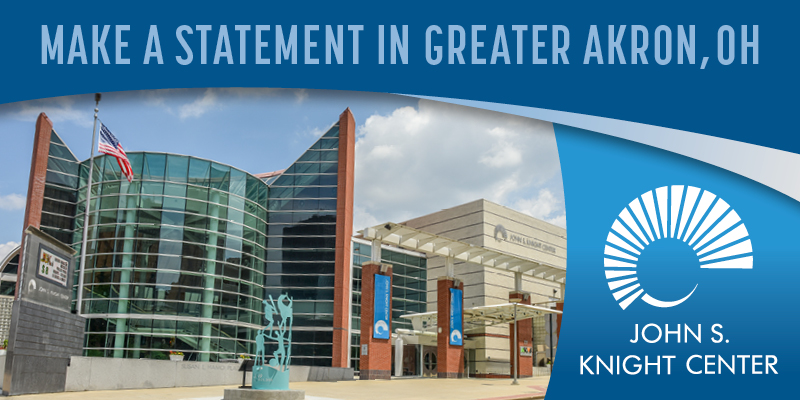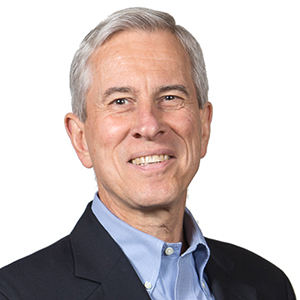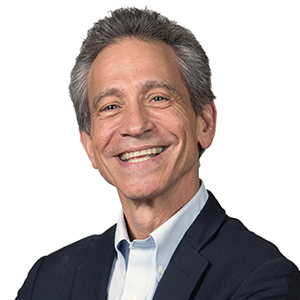When Béla Szigethy founded The Riverside Company in his apartment on Riverside Drive in New York City in 1988, his vision was constrained by the amount of capital he had to invest. He set out to create a little buyout shop that focused on small deals, because initially, that’s all he could afford.
Since then, some details of his vision have grown, while other aspects remain unchanged. The “little company” that he envisioned now consists of more than 350 team members across 14 offices in 10 countries around the world. When Stewart Kohl joined as co-CEO in 1993, establishing Riverside’s co-headquarters in Cleveland and fueling the firm’s expansion, “he brought a level of ambition, drive and focus on growth that helped us increase our vision from a small company doing small deals to a bigger company,” Szigethy says.
Despite this growth, the firm has maintained its focus “on the smaller end of the private equity spectrum,” Szigethy says. Although the size of its portfolio target has grown slightly since its first investment in a company with about $2 million EBITDA to companies with an average of about $25 million EBITDA today, Riverside’s commitment to investing in relatively small deals sets it apart from other investment firms.
Most importantly, Kohl notes, the values that have defined Riverside over the last 37 years have stayed steadfast since its founding, distinguishing the firm’s reputation in the private equity space.
“In the early days, we had two simple ideas: To live by the Golden Rule and to leave great references in our wake,” Kohl says. “We said we’d adhere to these, and even if we make less money, we’ll be happier. What’s interesting is that we actually ended up making more money, because values matter.”
ADVERTISEMENT
Finding investment opportunities
With this focus, Riverside has honed its investment sweet spot in “the smaller end of the middle market,” Kohl says, “where a lot of innovation [happens].” Through the decades, small deals have provided abundant investment opportunities. Every year, Riverside reviews approximately 5,000 companies looking for capital and invests in an average of 80, for a total of more than 1,050 investments since its founding, with more than 140 companies currently in its portfolio.
“In general, we have a bias in favor of very high-quality companies that are profitable and growing,” Kohl says; “ideally at double digits,” Szigethy adds.
Specifically, Riverside focuses on a few verticals with exponential growth potential, such as software and IT, particularly Software as a Service (SaaS). The firm has invested more than $1.5 billion in more than 150 SaaS companies, generating “some of our best success stories,” Kohl says.
Specialty manufacturing and distribution was the first niche Riverside invested in, and initially represented the bulk of its investments, although now it makes up about 15-20 percent of the portfolio, with nearly 300 deals to date. Health care represents another active vertical, with more than 200 deals in this industry.
Beyond software, Riverside also invests heavily in other business-to-business services, making nearly 400 investments in this space since inception. Similarly, the firm also favors companies that provide education and training, especially through a subscription model. Additionally, Riverside leans into franchise opportunities, investing in nearly 60 different franchise brands over time, including recognizable service organizations like Mr. Rooter Plumbing and Molly Maid.
Across these various verticals, “what those businesses have in common is the concept of recurring revenue,” Kohl says. “Whether it’s the royalty to the franchisor or the subscription for training, a high percentage of the companies we invest in have recurring revenue [models], so even if we don’t sell anything today, [we’ll get] money tomorrow,” providing stability and long-term earning potential over time.
Adding value
By targeting small companies, Riverside taps into nearly unlimited potential by fueling growth and creating lasting value.
“From the beginning, we realized that you could do more with a small company than you might be able to do with a large company, and you can do more if you control a majority share versus a minority share,” Szigethy says. “The opportunity for improving a [small] company is greater, and we’ve taken full advantage of that by helping companies manage themselves better.”
With a preference for partnering with sellers who want to stay involved, Riverside fosters long-term growth through operational improvements and strategic acquisitions. “Through a combination of organic growth and add-ons,” Kohl says, Riverside consistently expands its portfolio companies through new products, new markets, improved processes and enhanced operations.
Add-ons are a key component of Riverside’s growth strategy. Whether it’s a cross-border acquisition that extends an American company’s footprint into Europe, an addition that multiplies the customer base by expanding the addressable market, or a strategic talent acquisition that enhances a company’s capabilities, “we see opportunities for synergies,” Szigethy says, either to bolster revenue or cut costs.
Leveraging its global scale and vast talent network, along with a proven track record for deploying financial and intellectual capital, Riverside brings decades of specialized expertise to its portfolio companies. “It’s not at all unusual that we will double, triple or quadruple the size of the business, along with improving it qualitatively,” Kohl says.
Prioritizing values
Although measurable growth is one way of reinforcing Riverside’s investment successes, the firm isn’t solely focused on a deal’s worth in terms of numbers alone. The core values of the companies and people they invest in are just as important as the dollars.
“We score companies on their values before we invest in them, because we’ve seen a high correlation between companies that have great value systems and great outcomes, and companies that have poor value systems and poor outcomes,” Kohl says. “If you think about the word ‘valuation,’ which we use every day, thinking about how much we should pay for a company or how much you can sell for, the word ‘valuation’ and the word ‘values’ have the same root, so somebody a long time ago decided that values matter for valuation.”
Likewise, when recruiting talent either to grow its own team or to bolster its portfolio companies, Riverside’s leaders look for “a combination of excellent professional results and good values,” Szigethy says. Hiring people who are committed to “repeatedly doing the right thing” tends to perpetuate more of that behavior, he says, while weeding out personalities that don’t model the firm’s values, which include honesty, integrity and accountability.
Whether recruiting an employee or vetting a potential deal, Riverside begins with extensive background checks and an in-depth evaluation process. “During a typical due diligence process, you’ll spend hours with somebody and make a gut decision, alongside the metrics and testing,” Szigethy says. “If you ask the right questions, you can find out a lot about somebody.”
As part of the Riverside family, associates get ongoing exposure to the firm’s innerworkings through a regular Meeting of the Minds (MOMs). Each fund family and other teams like investor relations have their own dedicated check-ins with Kohl and Szigethy at a certain time every Monday. These weekly meetings, “rarely canceled and barely ever rescheduled,” are like “the metronome of Riverside because it keeps us moving forward,” Kohl explains.
During these meetings, team members provide updates on their weekly progress toward deals or other important decisions. By sharing the insights behind their dealmaking processes, team leaders pass down their investment best practices to junior members on each call.
“From an indoctrination perspective, the most junior people are sitting in the room with the most senior people talking about the most sensitive aspects of our deals,” Kohl says. “Someday when we go back and look at what has made Riverside successful, I think, in a very subtle way, that the MOMs will have been a big part of that.”
Providing growth opportunities
Global expansion has created plenty of opportunities for people to grow and develop within the firm, fostering mentorships and training programs along the way.
“We have broken up what would otherwise be a larger organization to really decentralize it,” Kohl says. “Depending which office you work in, which fund family you work for, or which part of our shared global resources team you’re on, you’re part of a unit, and there’s a lot of mentoring that goes on there.”
Within this decentralized structure, managers “push down a lot of responsibility” to empower employees by giving them control over their own work, Kohl says, rather than dictating what to do. Plus, the high number of small deals and add-ons that Riverside pursues “gives junior people a lot of reps,” Szigethy adds. “That’s the best way to train them.”
Over time, Riverside formalized its training initiatives under the umbrella of Riverside University, an ongoing education program comprising both in-person and online sessions. Ranging from smaller weekly or biweekly seminars to larger conferences like the annual Riverside Leadership Summit, these programs provide avenues for sharing best practices, honing skills and cultivating growth throughout the firm.
The curriculum ranges from leadership topics such as corporate performance management and employee engagement to sales skills like negotiation, neuromarketing and social networking, and operational topics like supply chain management and add-on acquisitions.
“It’s designed to benefit our own employees, but most importantly, the executives at the companies we invest in, so it helps make our investments more successful,” Kohl says. “It becomes another reason why a company might choose Riverside to be its private equity partner, because we have a number of programs designed to make their work better, easier, happier and more rewarding.”
Moving to new heights
After more than 30 years in Terminal Tower, Riverside recently relocated its Cleveland co-HQ to Key Center — literally taking the firm to new heights.
As Riverside’s lease at Terminal Tower neared expiration during the COVID pandemic, the firm’s leaders began “looking ahead at the changes occurring in the world and in the workplace,” Kohl says. “We asked ourselves: What is the workplace of the future going to look like? We realized that it’s unpredictable, but what was obvious is that you want to create a space that’s flexible.”
Riverside’s new office on the 57th floor of Key Center is the culmination of this thought process, involving the input of team members, along with architects and cultural architects, who designed the space around flexibility and collaboration.
“We wanted to create a space that promotes collisions, because when people collide at work, good ideas come from that,” Kohl says. “Most importantly, we tried to provide a space that would be as much fun, comfortable and attractive as working from home — maybe more.”
Modern furniture, playful lighting and contrasting accents give the space a sleek, sophisticated look, while pulling in nature-inspired elements through green walls and plenty of plants, with windows offering expansive views of the surrounding city. Cozy lounge chairs and workstations overlook these vantage points, with reminders of the firm’s cultural values sprawled on the walls like graffiti.
Although Riverside’s new space is about 3,000-square-feet smaller than its previous office, which spanned 13,800-square-feet across two floors of Terminal Tower, the updated digs are much more efficient, surrounded by great amenities and inspiring vibes. Situated on the top floor of the tallest building between New York and Chicago, Riverside’s office places employees in the highest human-made space around, which says a lot about the firm’s industry-leading position.
As much growth and success as the new office represents, Riverside’s leaders believe that it’s just as important to acknowledge the mistakes made along the way. To that end, they carefully document what they’ve learned from bad deals, featuring these prominently on the bathroom walls as “Lessons from the Loo.”
“Learn from your mistakes. Don’t forget them,” Szigethy says. “We try to make sure everybody knows what those mistakes were, so they don’t have to go through the same bad decisions that we made.”
Giving back
With a long history of individual philanthropic efforts throughout the firm, The Riverside Company encourages employees to give back to the communities where they live and work. The best example might be co-CEO Stewart Kohl’s founding of VeloSano, a year-round fundraising effort that supports cancer research at Cleveland Clinic through the annual Bike to Cure event and other initiatives. Since 2014, VeloSano has raised more than $80 million, including a record-breaking $14.3 million in 2023. Although not officially linked to the firm, the event has garnered significant participation from Riversiders around the world.
In that vein, both co-CEOs encourage Riverside employees to give freely to causes they believe in. “We certainly want to foster positive values, and one of the ways we do that is through RiversideGIVES,” Kohl says.
Inspired to respond to the rising needs they observed during the COVID crisis, Riverside’s senior management team launched an initial round of fundraising that evolved into RiversideGIVES, a corporate matching program developed in partnership with the Cleveland Foundation. The firm matched individual donations from employees to raise more than $400,000 to support communities impacted by the pandemic.
The leadership looks to employees to select the causes and communities to receive these funds, such as the Greater Cleveland Food Bank. Likewise, the employees choose volunteer activities for local service days, which predated the official launch of RiversideGIVES and continue underneath the philanthropy program as another way of giving back.
Last year, for example, Riverside’s Cleveland office volunteered at the Food Bank to support its back to school event, and the previous year, they pulled weeds at a local urban garden.
“Each of our offices decides what community activity they want to get involved in, and plans a day of service to do that,” Kohl says. “It has become a fun way for us to get together and contribute. ●
TAKEAWAYS
- Stay true to your vision and values.
- Define your niche and seek growth opportunities that align.
- Invest in your people with mentorship and training.
- Learn from your mistakes.




